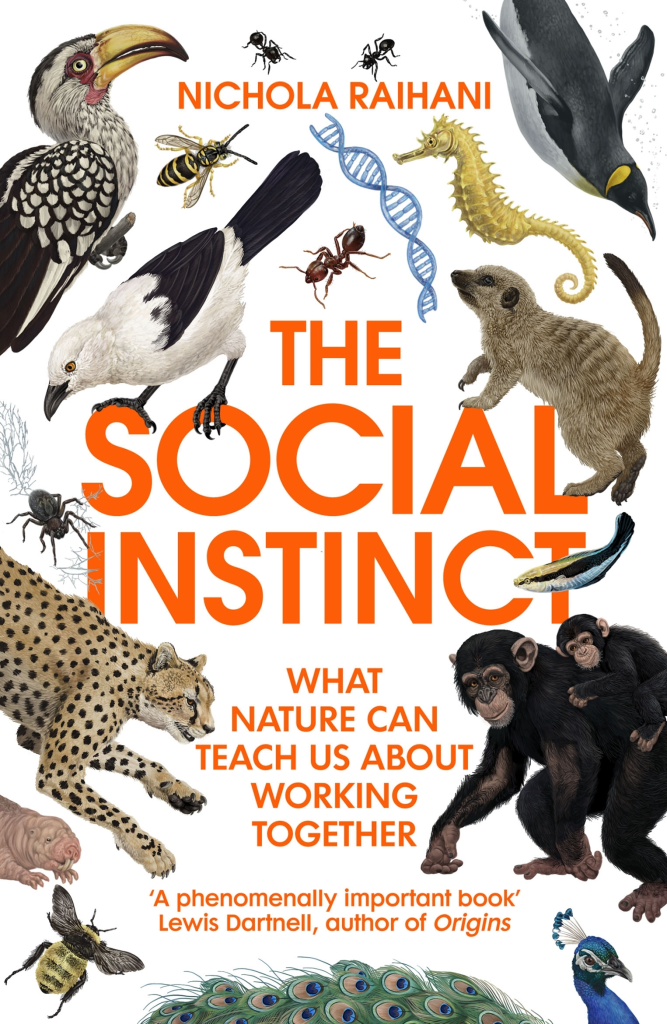
Book Review 2023.05: The Social Instinct, What Nature Can Teach Us About Working Together-Nichola Raihani, 254 pages, Paperback, 2021
In the month of April I purchased five books of which The Social Instinct was one. I happened to complete it today, on our 77th Independence Day. My basic belief that cooperation is part of nature’s intrinsic design prompted me to pick this book up and it certainly did not disappoint me. It went a long way in reinforcing my belief of cooperation among living beings on this planet citing examples of microorganisms, insects and birds to animals and human beings.
Successful cooperation in its essence is incurring a private cost for larger public good, and it works only when most of the participants contribute. This book describes the need for cooperation as well as the checks and balances to be in place to make it effective. In short, the book captures the history of life on this planet seen through the prism of cooperation i.e., a tale of reciprocation, collaboration, partnerships and alliances.
Organized in four parts, the author traces the recurring theme of the need for cooperation emerging from the limitations of competition when facing bigger and tougher challenges. It throws light on the checks that have evolved in place to handle shirkers who evade responsibilities, thereby ensuring desired goals are realized. This recurring theme is traced in four categories, in individual organisms, in families or smaller groups, in larger groups like colonies and clans, and finally in human society. The four-part narration helps identify and reinforce the basic pre-requisites for cooperation to succeed.
Covering a whole range of topics from teaching, trading, nepotism, corruption & bribery, to evolution of an equalitarian human society from the hierarchical animal kingdom, the book offers many interesting and engaging anecdotes that help reinforce the need for and the benefits of cooperation. By touching on the need for social institutions like the police and courts for punishing errant individuals to make cooperation effective, it highlights how human societies seek to promote peace by eliminating the cause for revenge.
This book is not for those looking for light reading and is recommended for more serious readers who are interested in understanding the conditions and factors needed to make cooperation thrive in groups. Organized in eighteen short chapters, it is ideally read a chapter a day.
Happy reading as we jointly strive to create our sustainable future.

Social Profiles